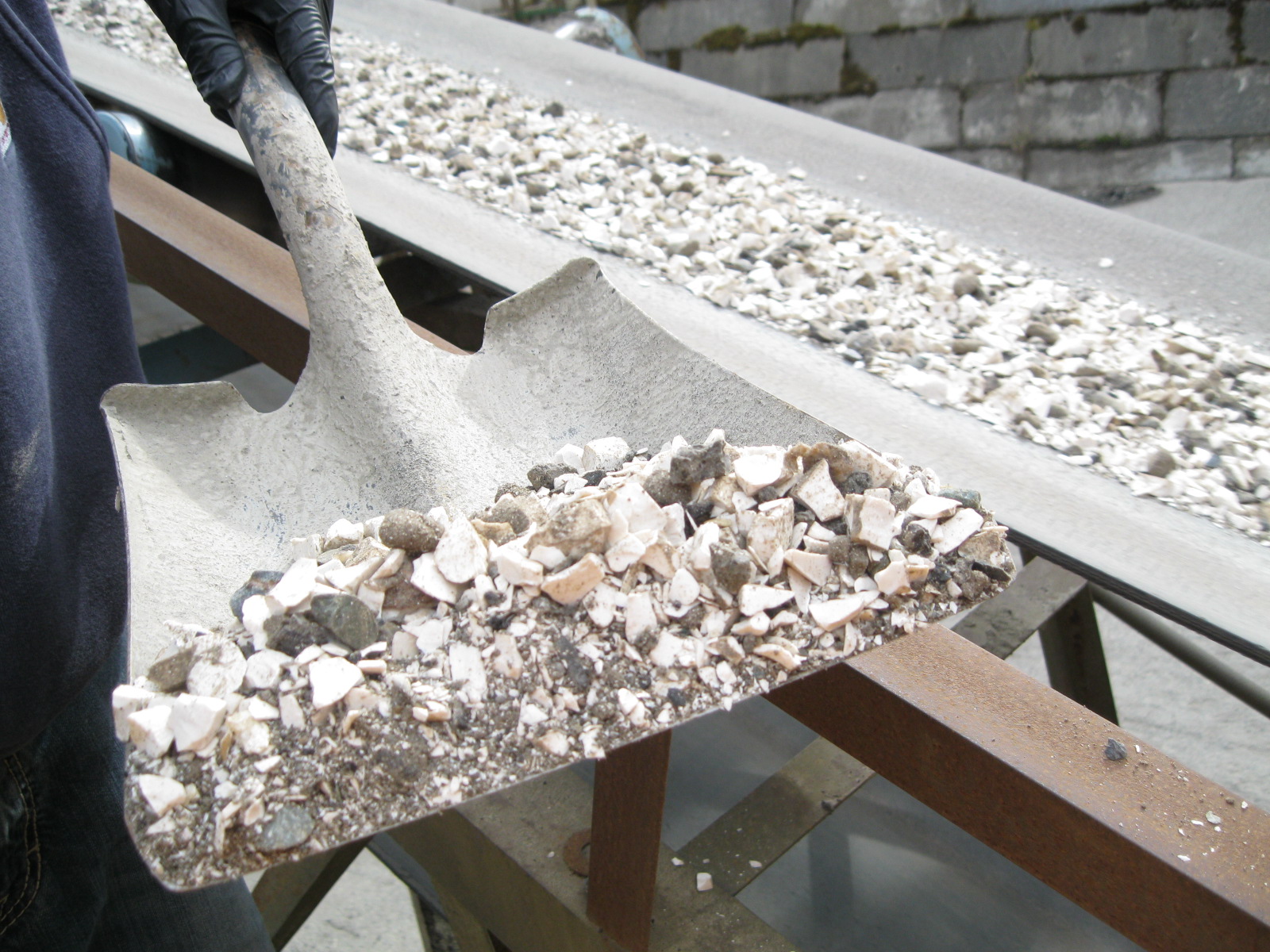
Contractors bidding on projects for the City of Bellingham, Wash., have the option of adding a new element to concrete mixes—toilets.
The city wants recycled aggregate in concrete flatwork projects to catch on, so much so that engineers have experimented with using crushed toilets in a new “poticrete” mix. They unveiled the first stretch of sidewalk sporting poticrete in late September.
Freeman Anthony, Bellingham city engineer, says he was working on upping recycled products in city concrete specs when a local nonprofit that does green building called and asked if he could do anything with 400 toilets they were ripping out of low-income housing. Anthony had an idea and took it to Brent Cowden, general manager of Bellingham’s Cowden Gravel & Ready Mix.
“I thought he was nuts, but I knew his heart was in the right place,” jokes Cowden. The two experimented together on a couple of test batches over a few hours, resulting in a 30- to 40-cu yard test pour in September for sidewalks on a downtown street project in September.
During the sixth-month project, Cowden crushed the toilets and worked them into a standard mud mix. The angular pieces of porcelain proved tough to finish, so he upped the sand content and added in more crushed river rock to balance out the light porcelain. After 28 days, the sidewalks sat at 4,000 psi, well above the required 3,000 psi and on level with the strength of the city’s regular mud mix.
The Transportation Research Board says it hasn’t seen anything like this before. Dr. John Haddock, a Purdue University School of Civil Engineering professor, says while he hasn’t seen crushed toilets in Portland cement concrete, he has seen them in hot-mix asphalt. His only concerns revolve around unproven strength, durability and absorption. “I don’t know if any of these three concerns are valid for sidewalk PCC, but they are concerns that should be addressed,” he says.
Both Anthony and Cowden agree the project has proven successful, but Anthony will monitor the area for a year, which also has driveways that receive heavy truck traffic, to ensure it doesn’t do “weird things.” He hopes that it holds up—if it doesn’t, he will move it out of high-traffic areas for future use—and that he doesn’t discover finish issues that force them to revisit the mix. He does expect the poticrete to perform on par with traditional concrete mixes.
With no cost savings to the gravel company, Cowden says the benefit lies in diverting waste product from a landfill and will require a large municipality mandating it as a spec for it to catch on.
Anthony’s already on it. He has worked up a draft spec that includes crushed tile and porcelain and intends to include it in all city bids so that when “you open the city bid docs, you see ‘thou shalt use this.’ I am very hopeful other agencies will take the spec and use it too. It helps get everyone on the same page.”

Post a comment to this article
Report Abusive Comment